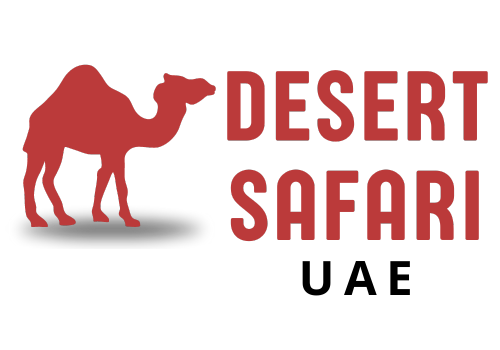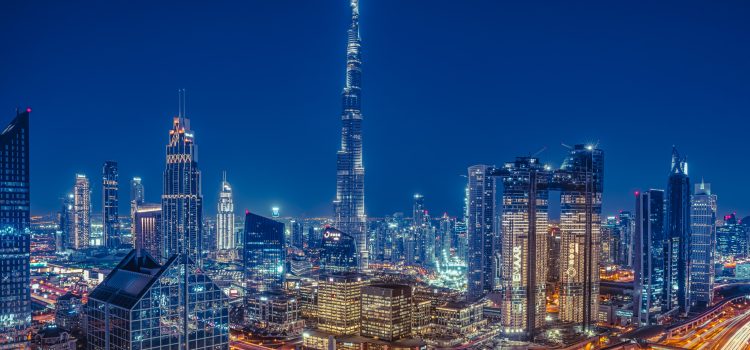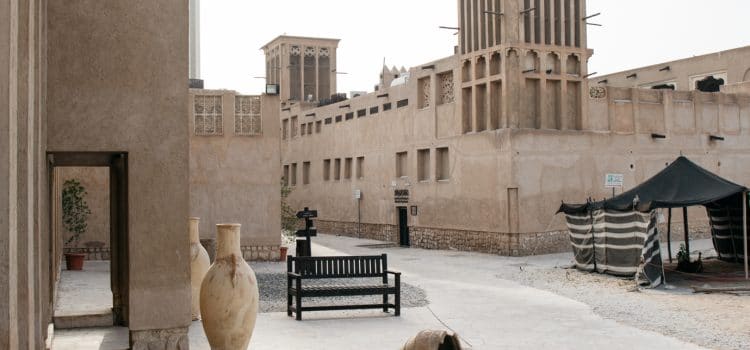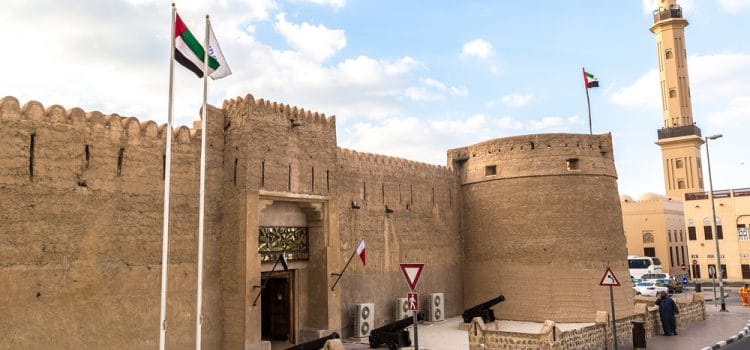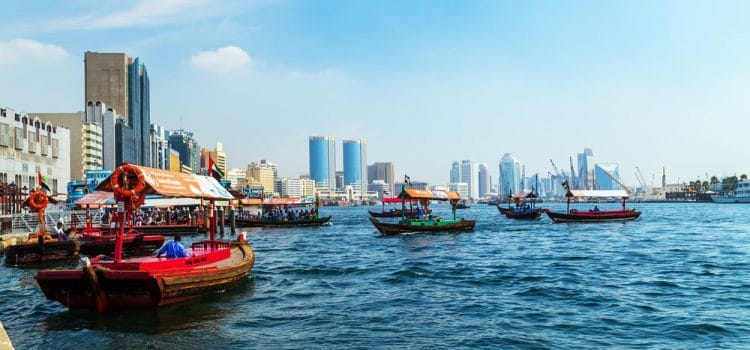Things you Didn’t Know About Burj Khalifa
A lot is said and covered about Burj Khalifa – the world tallest building! The building is so famous that it is featured in two of the greatest Hollywood film Franchise – Mission Impossible and Fast & Furious.
So, today in this article, we will look at the skyscraper from a different angle. So, let’s begin –
Why was the Burj Khalifa constructed?
Khalifa means king in Arabic and the UAE government at the time wanted to give its citizen a reason to smile. What better gift than to construct the single tallest building in the world. The building was also a sign that the city was moving away from the oil economy and become a tourism hub. This delighted the citizens even more.
Ever since its inauguration, the tower has stood strong and haven’t encountered a blemish. This is extraordinary considering thousands of machines and people are involved in a single day activity in the building.
Now, let’s look at the things you didn’t know about the Burj Khalifa –
- It is cooler at the top: When we climb a mountain, the temperature drops as we go up. Similarly, temperature also drops as we higher in the building. On average, there is a 15-degree difference between the bottom and top of the building.
- Build like a musical instrument: Skyscrapers are built to bend with the air. Similarly, Burj Khalifa was designed to bend with the wind. The tower was tuned like a musical instrument; however, the wind won’t match with the building. This makes it impossible to hear a note.
- The number of workers: A lot of time and effort was put in the construction of the tower. It is estimated that more than 22 million working hours were invested in the whole construction over a period of six years. During its peak construction days, the tower had more than 12,000 workers on site.
- Multiple record holder: All of us know that Burj Khalifa is the tallest building in the world, but the tower also holds other world records. Such as the tallest occupied floor, elevators with the longest trails, most number of floors in a building, tallest service floor, etc.
- Incredible weight: To build such a humongous building, you need a lot of core strength. The official record shows that the amount of concrete used in the building is equivalent to 100,000 elephants. And the amount of aluminium used is equivalent to that of five A380 aircraft.
- The Tower was renamed: Before the launch of the building, the tower was named as Burj Dubai. But in the opening ceremony, they decided to rename in honour Sheikh Khalifa bin Zayed Al Nahyan, the Emir of Abu Dhabi, due to his contribution to the city of Dubai.
- Tackling with heat: Dubai is undoubtedly one of the hottest places on earth. To tackle this superheat, more than 300 Chinese experts worked on the isolation system to keep the Khalifa cool. Moreover, there are 24,348 cladding panels protecting the tower.
- Massive cleaning job: The question is, how can you clean such a massive building. You run 12 machines, each weighing about 13 tons and each everything that comes in its path. One machine takes 36 workers to operate.
- Power and Energy required to run the tower: A typical household requires 80 to 100 gallons of water each day. While the Burj Khalifa requires 250,000 gallons of water each day. Also, the electricity consumed in the tower’s daily activities is equivalent to the energy consumed by 360,000 bulbs together.
- Inspired by a flower: Incidentally, the design of the tower was inspired by a flower – Hymenocallis. The flower takes its name from the Greek meaning, “beautiful cone”. This is because the flower has long petals which extend from its central core. Similarly, the tower has wings which centred around the core just like the flower petals.
You might be even more impressed by the Burj Khalifa now. But the beauty of the tower in seeing it in person. The taunting shadow which you can spot from a mile and the picturesque view from the top of the desert and the swimming pool below is sure to dazzle anyone who sees it.
Burj Khalifa is a man-made marvel which everyone should visit once in their life.
A Dazzling Tour of Al Bastakiya
AI Bastakiya, or it is better known as the Bastakiya quarter, was an Iranian colony. The district was established at the end of the 19th Century by Sunni Iranian merchants to cater to their textile and pearl trade. The place is a perfect display of Dubai before the federation of the Emirates. This heritage site has been declared as a conservation area. This makes the district perfect for a short tour.
What makes AI Bastakiya so dazzling?
The city was Qasim Bin Abdullah Al Bastaki, hence the name. The area was once considered to be dull and old, but now is the essence and magnificence of Old Dubai. Architecture is unique as the style is a combination of cultures that have helped build Dubai.
As you walk through the narrow stress, Islamic calligraphy adorns the walls of the building, Levantine decorations on the streets, and the North African style of courtyards. This gives you a sense of multi-culturalism of the city that Dubai once was. The beauty magnifies when you see the other side of the city, which is very flashy and high-end.
Attractions to visit in AI Bastakiya:
- Historical Building section: The building was constructed in 1930-31 over an area of 400 sq. Meter. The building consists of a small building paired with two towers, each of three-storey. The building was created to help visitors view the magnificent Dubai creek.
- Gallery Majlis: Another building constructed in the 1930s. The building is adorned in traditional Middle eastern décor and shows the trend of antiques of that time. Currently, the building acts as a place to house traditional paintings, art pieces, and antiquities from all of Dubai.
- XVA Hotel: If you want to spend more time in AI Bastakia, then there is no better choice than the XVA Hotel. All the rooms are designed to overlook the ancient courtyard. As you are in Dubai, even an ancient style hotel has modern amenities. Having said this, the experience is completely different from other stays in Dubai. You would feel like a Maharaja living in Dubai.
- Bastakiya Night Restaurant: This restaurant changes the meaning of nightlife. The building was originally a house constructed in 1895, covering an extensive area of 650 sq. Meters. The two-storey building has traditional interiors and a view overlooking the creek. Moreover, the restaurant serves traditional Arabic food, which gives you the feeling of a delicious homemade meal.
- Sahara Gate: This monument was built in the year 1954 over an area of 310 square meters. The interiors of the walls are designed in traditional Arab style, with Islamic writings on the walls. This gives you a good idea of how the royal lived in the past in Dubai.
Other than the buildings, there is an aura about the place which makes you feel how beautiful it would be to live in a place like this back in the day.
How to visit AI Bastakiya?
- By Car: You can easily cab from any part in Dubai as all the roads are well connected with the AI Bastakiya area.
- By Metro: There are two nearby metro stations – the Al Fahidi station, and the Bur Juman station.
- By Bus: If you are taking a bus, then remember to get down at the Al Fahidi bus stop.
Other things to remember before going for the tour:
AI Bastakiya is open throughout the week from 9 AM to 6 PM. The good thing is there is no entrance fee for the area. You can hit the street and feel the heritage of Dubai.
Few other tips –
- Carry cash with yourself as there aren’t many cards and ATM machines.
- Only wear lightweight and color clothes as this is a mostly outdoor tour.
- Charge your phone or carry a power bank with you.
- You can also hire a guide to learn in-depth about the district.
So, this is everything you need to know before you get dazzled by AI Bastakiya!
All You Need to Know About Dubai Museum
The National Museum of Dubai or it is commonly referred to as the Dubai Museum, is one of the top attractions in the marvelous city of Dubai. Whenever people talk about a vacation in Dubai. They always mention Burj Khalifa and the other breathtaking skylines along with the Dubai Desert ride. But a trip to the desert city is incomplete until you had a historical lesson. The Dubai Museum is one of those monuments which will leave you spellbound. The level of detailing and historical significance is very impressive.
Here are a few things you need to know about the Museum:
A Brief History:
The museum is built to house “AI Fahidi Fort,” the fort is one of the finest illustrations of an ancient desert fort in the Middle East. The Fort was built in 1787 and is one of the oldest in the area. It was initially constructed as a barricade to protect the area from sea pirates and neighboring tribes.
As time passed, the fort turned into an administrative seat and a residence for the ruling family. After which it served as a prison and a garrison. Then in 1971, Sheikh Rashid bin Saeed Al Maktoum converted the fort into a museum.
Journey back in Time:
The museum was constructed with the intention to take people back in time and experience an Arab lifestyle. You can see that when you enter the museum’s main gate, as it is guarded by two cannons. As it used to be in the days before. The two cannons were to defend the gate and the nearby harbor.
Then comes the museum’s large courtyard, which is a long traditional dhow. As you look around, you will be blown away with the incredibly traditional and extraordinary charm of the place. Then are a number of small wooden boats and a wooden house called Barasti houses.
Alongside them are AI Areesh (Summerhouse), which had their own air-conditioning system that cooled the house and ran without electricity. You can experience this AC system in the central courtyard bounding the galleries. There is also an archeological ruin that traces back to 2500 BC. The ruin is believed to belong to Al-Qusais, Hatta, Al Soffoh, and Al Jumeirah.
The museum also depicts the region before pre-oil dominance and the once flourishing pearl farming industry. You can view an ancient collection of weapons, which include silver khanjars and camel bone weaponry. Other popular exhibits are stone inscriptions, paintings, bridal wear and jewelry, stone and pottery items, musical instruments, and other items related to traditional Arab life of that time.
Life-Size Dioramas:
Let’s move to something more intriguing, and it’s time to visit the many galleries in the fort. They provide a comprehensive intro in the daily lifestyle of Dubai through many series of life-size dioramas through ancient Arab houses, mosque, date farms, souks and desert life, etc.
Multimedia Presentation:
No one wants to see a presentation on vacation, but this is a Multimedia Presentation shown in the museum’s basement area. It is quite interesting and well-researched. It shows you the transformation of the city from a small, modest town into a prominent pearl farming center to what we see now Dubai – a highly sophisticated global city.
Location:
The Museum is located in Al Fahidi Historical District. The area is known for the charming locales and the traditional buildings that have been restored to give the region its original Arabic flavor. Near to the fort is the scenic Dubai Creek and Old Dubai’s traditional souks, which gives you extra reasons to visit the fort.
How to reach Dubai Museum?
Now that you are excited about all the things inside the museum and thinking of visit it. Here are a few ways –
- Via Metra: Go to the nearest metro station and take a ticket to Al Fahidi Station. The station is on the green line in zone 5. After which there is a 12 min walk to the museum.
- Via Traditional boat: If you want to see a scenic Dubai creek, then go for this ride. Make your way to Deira via the metro and then walk all the way to Deira Old Souk Abra Station, which will drop you near the fort.
The Entrance fee in the fort is 3 Dirhams for Adults, 1 Dirham for Children. While the fort is opened from 8:30 am to 8:30 pm on all days except Friday. When it open from 2:30 to 8:30 pm. If you book a package, then the Dubai Museum will be included, but you should check it for assurance.
As you can imagine, the Dubai Museum is a captivating fort and a place worth visiting.
10 Things to Do at the Dubai Creek
If you think that Dubai Creek is just another saltwater creek that runs through the middle of the city. Then you are missing out on a picturesque scenery, filled with a mystical aura that can’t be anymore Arabian. Dubai is filled with natural and man-made marvels that will take your breath away. Yet, people categorize about Dubai Creek as a must-watch.
So how did the Dubai Creek come about?
Dubai has always been a major port city in the UAE, and it was due to the Dubai Creek. The creek existed before the birth of Christ. A safe harbor to ships trading in the Arabian Gulf. Then in the 1950s, the creek split through the ground, creating a small canal.
This gave HH Sheikh Rashid bin Saeed Al Maktoum, Dubai’s then ruler, an idea of expanding the creek. The small canal was dug up, and a 4,000-foot-long and six feet deep canal was excavated. After further construction, Dubai Creek was born in downtown Dubai.
Now let’s look at some of the things that you could do at the Dubai Creek –
- AI Fahidi Fort: If history interests you or you want to feel what it was like living in the 18th century in Dubai. Then you should visit this 1787-built fort which is housed inside Dubai Museum. The fort is one of the oldest existing forts in the region.
- Cable Car: If you don’t want to travel in the boat or want a better scenic view of the creek, then suspend yourself in a cable car that is 30 meters in the air. The entire 2.3km length of Dubai Creek Park is covered in just 30 minutes.
- Cruise-de-Creek: This is no ordinary cruise as the slow boat lets the traditional surrounding grow on you, and steadily you fell in love with the Arabian charm. You can enjoy this experience by hiring aa water taxi, wooden dhow, or cruise down the Dubai Creek. The cruise is better enjoyed in the night.
- Dubai Dolphinarium: This is a live, action-packed dolphin show you have ever seen. After watching the show, you will understand why dolphins are so intelligent. The show allows you to get close to these friendly mammals and even click a selfie with them.
- Walk down the Lane: No trip is complete without a friendly interaction with the locals. Near the Creek is Dhow Wharfage, and the walk down this lane can be one of the most interesting decisions of your trip. The area is filling dock for sailors who would be more than happy to let you sneap peek in their life. If you are lucky, you can even enter their dhows.
- Shop spices: It is a thing of the past when you could smell and tell what was cooking for dinner. The Shop spices will take you back in time as your senses would be treated with the aroma of some exotic herbs and spices. You can even buy some to take back home to revisit the aroma.
- Gold Shops: Dubai is famous for being ultra-rich, and Dubai Creek gives you the opportunity to visit Gold Shops. These shops are known to have one of the most extensive and beautiful collections of gold. There is no price for trying the jewelry, and if something hits your heart, don’t forget to bargain.
- Street shows: There quite a few street shows that you can witness. These live shows involve plays, music, and fireworks. Some of the popular shows take place on The Al Seef, Al Muraqabat, and Al Rigga streets
- Night Life: The Dubai Creek area has its own fair share of high-end disco bars, cafes, restaurants, discotheques, etc. There are plenty of entertainment venues that won’t lead to a boring night ever.
- Enjoying Sunset: Sunset is such an under-appreciated event. The right place with the right person can make you remember a sunset for life. At Dubai Creek, you can enjoy the view either on the boat or at a restaurant eating with your special one.
Where can you stay Nnar the Dubai Creek?
The area is saturated with opulent, mid-range, and budget hotels and hostels. You can easily find a room in budget hotels like Desert Palm, Citymax Al Barsha, Jonrad, or Ibis. And you visit the creek via the metro from any part of Dubai.
Conclusion:
The Dubai Creek is a scintillating place, especially at night, when lights lit up the waterfront. With shining floating vessel on dark water, turns the landscape into something out of a book. All of which makes Dubai Creek, once in a lifetime experience.
